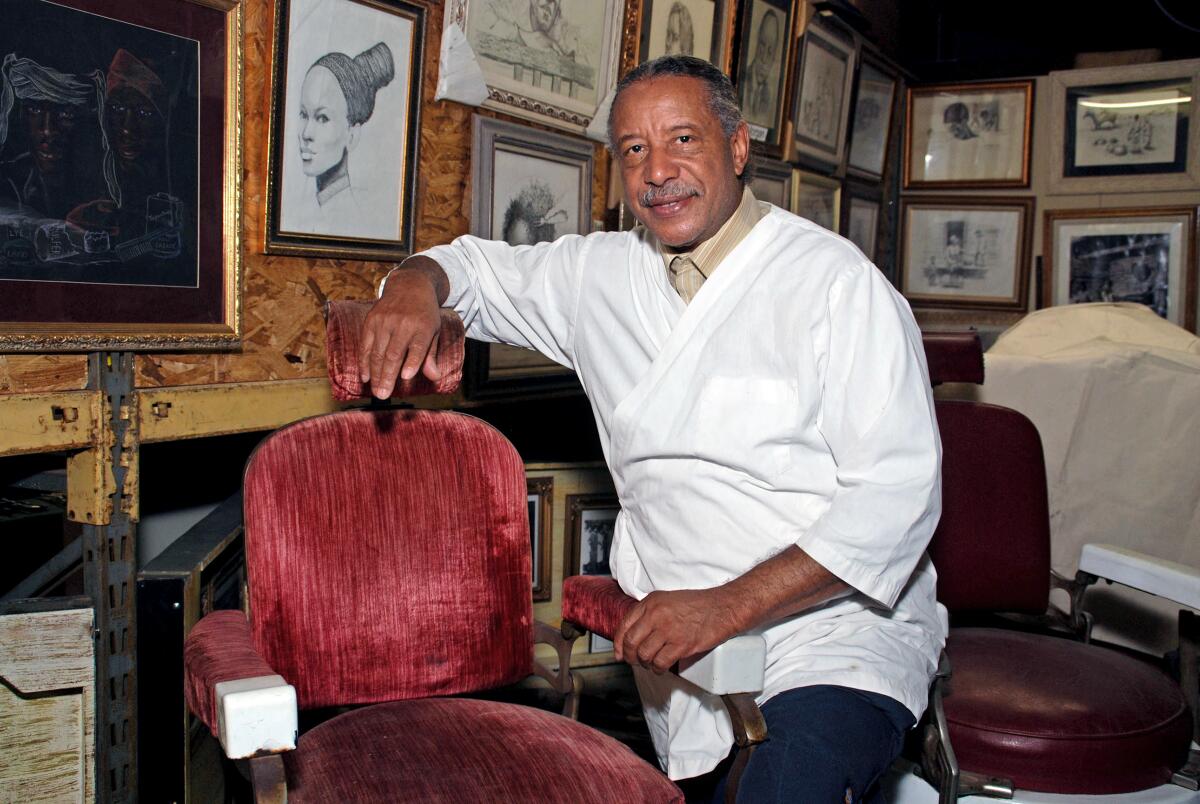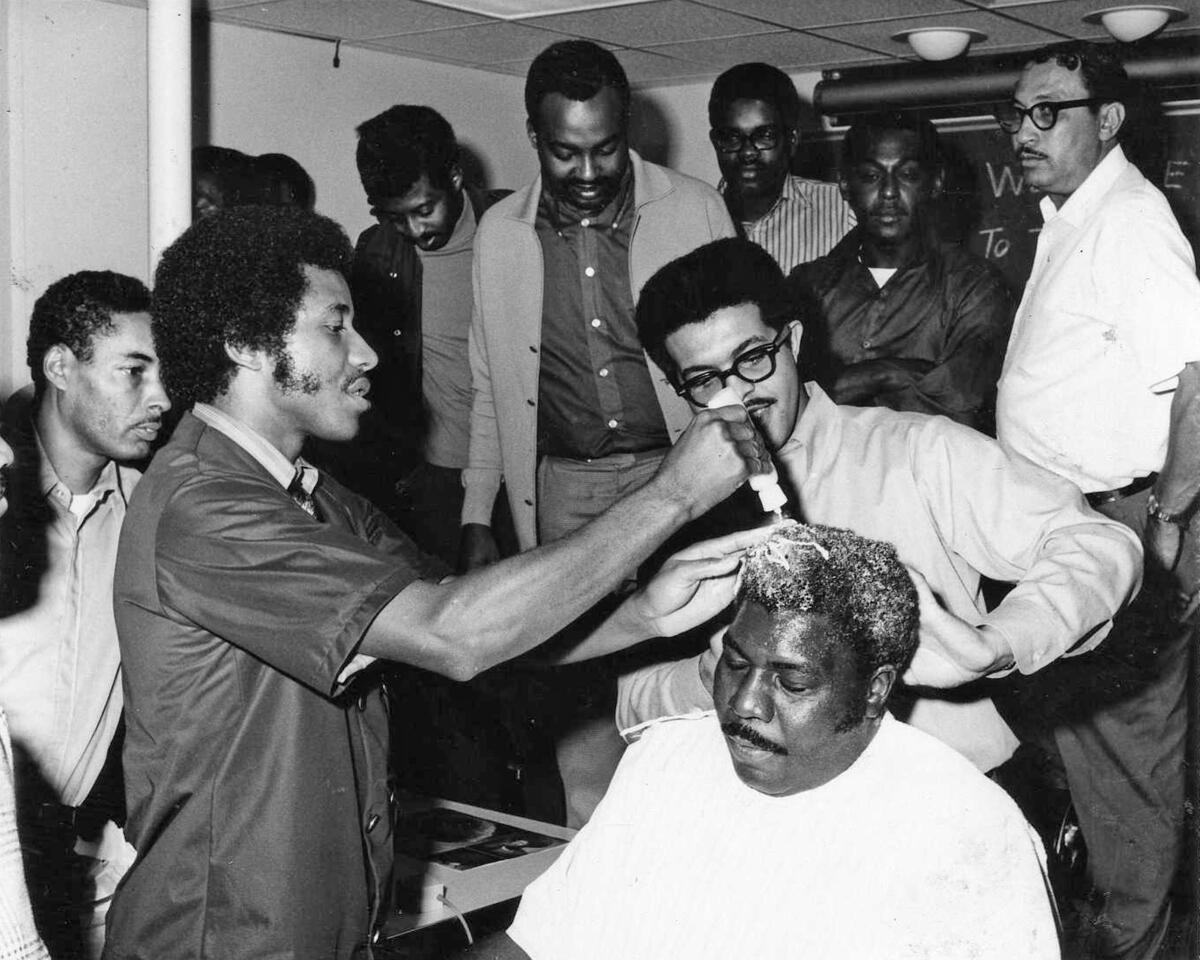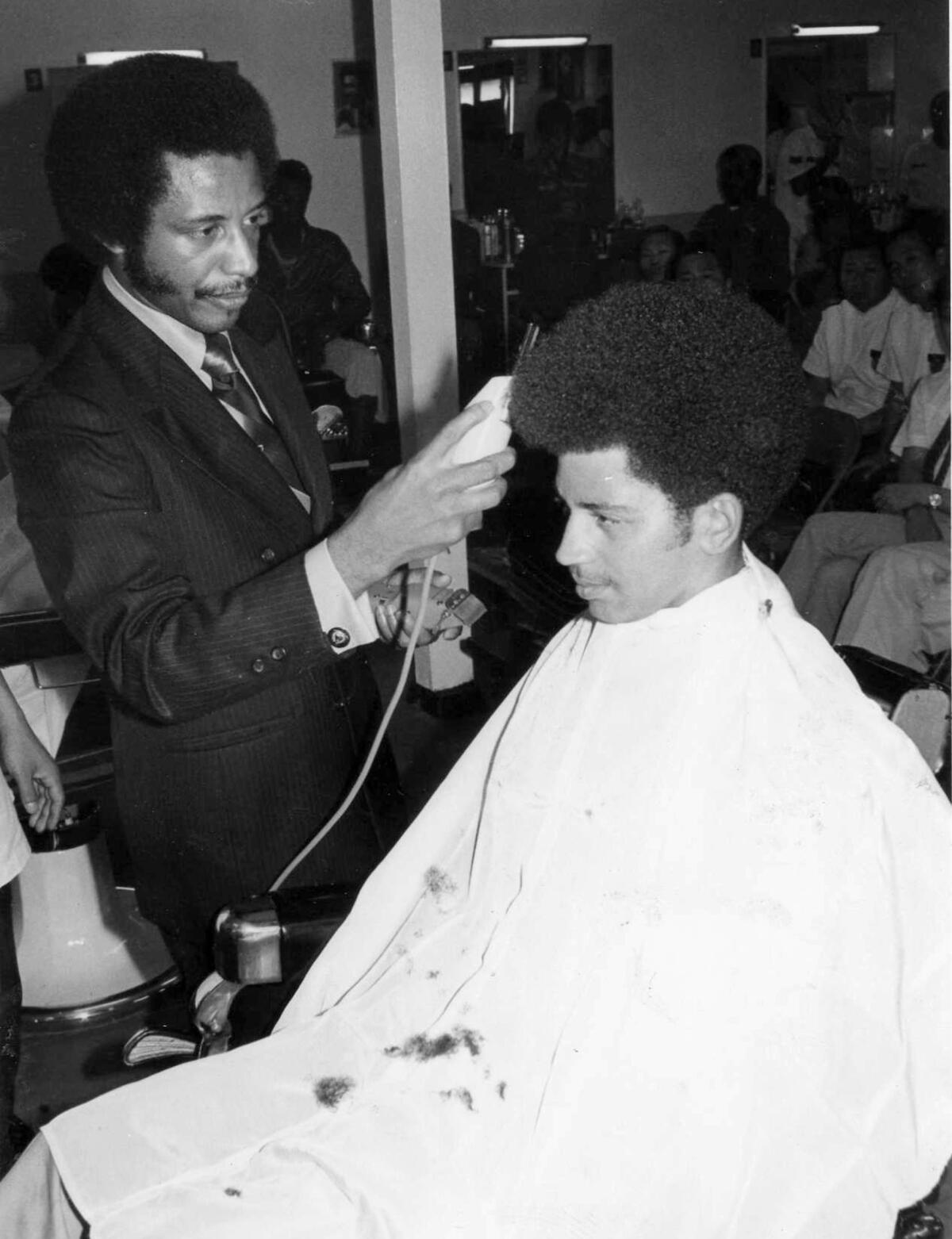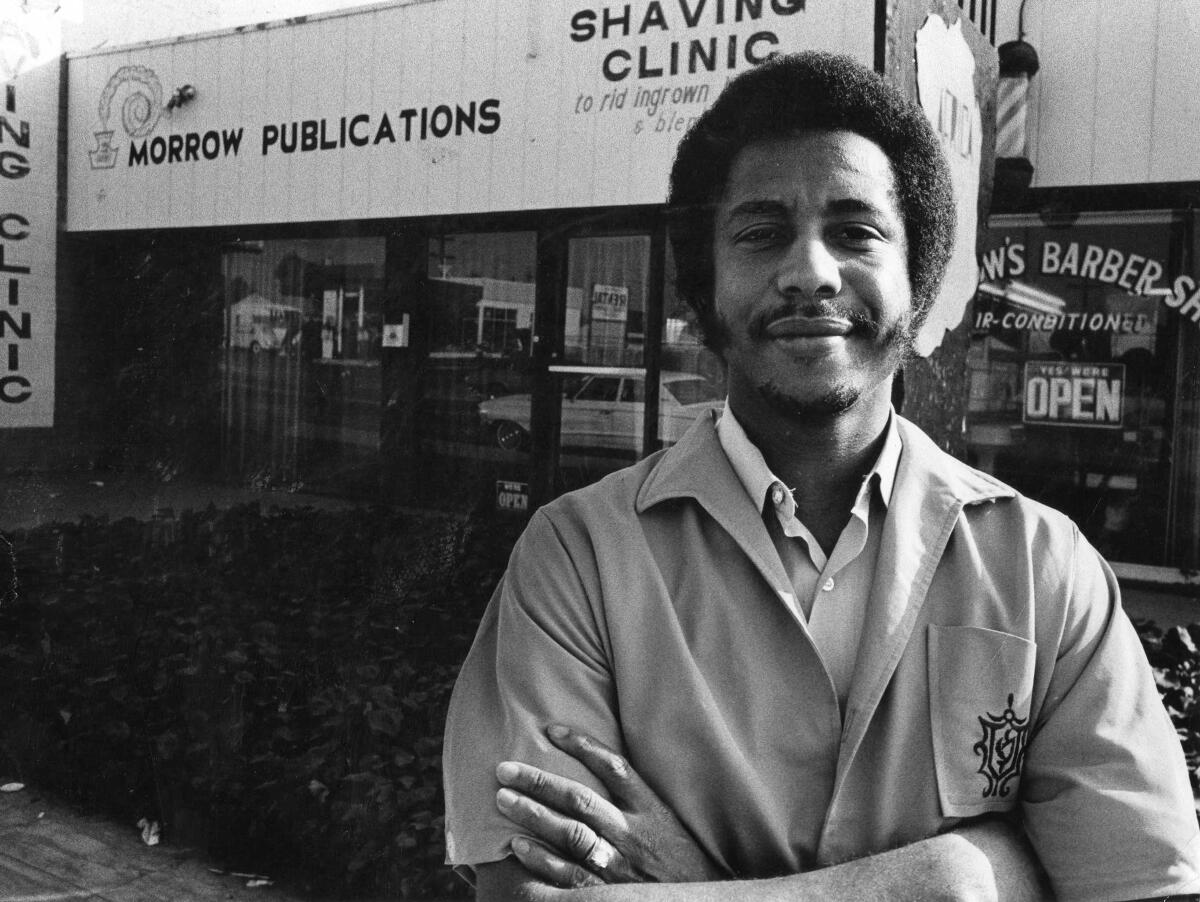Willie Morrow, Black community leader and inventor of Afro pick, dies at 82

- Share via
SAN DIEGO — Whether Willie Lee Morrow was inventing hair care products, founding and running local media outlets or teaching haircutting techniques to the military, he was remembered as someone who was always working to lift up the Black community in San Diego and beyond.
The hairstylist, chemist, entrepreneur, author, inventor of the Afro pick and pioneer of the Jheri curl hairstyle died June 22 at his home, surrounded by family. He was 82.
Cheryl Morrow said Wednesday that the salon her father established in San Diego in 1959 and the hair products he invented in the 1960s and 1970s came from his desire to serve the Black community by making resources available in their neighborhoods.

Initially, Willie Morrow offered his hair care services, then built out his hair products business and used the profits to start a radio station and newspaper in the same commercial building as his hair-related ventures. The media companies provided community engagement and affordable advertising opportunities for small-business owners.
“He just believed in community being the source of the economy,” Cheryl Morrow said. “That you should not have to go out of your own community for the resources and wealth that you needed. It should be in your community.
“And it just so happened that because of the cultural iconography of Black hair, it was such an industrial powerhouse that it funded other things,” she said.

Born on Oct. 9, 1939, to a family of sharecroppers in Tuscaloosa, Ala., Willie Morrow taught himself basic barbering and chemistry, then used those skills to build the foundation of his hair care empire.
In the 1970s, the U.S. Department of Defense enlisted Morrow to teach haircutting and to cut hair on military bases and in war zones. After his military service, Morrow went on to write numerous books about hairstyling and cutting.
He also met and married his wife, Gloria Morrow. They were married for 56 years at the time of Willie Morrow’s death, and the couple had two daughters.
Cheryl Morrow said her father loved to grow vegetables and made his own wine, something he learned while growing up on the farm.
He also collected things, including antique hairstyling tools. Many items in his collection were displayed in a 2016 exhibit about Black hair culture at the California Center for the Arts, Escondido.

State Assemblymember Akilah Weber (D-San Diego) said Morrow was an inspiration to many.
He “was the embodiment of the promise of America,” Weber said in an email Thursday. “He grew up in the south to a family of sharecroppers and through hard work and his own ingenuity, built a multi-million dollar haircare business and media empire. He embraced his community and became the protector of rare and priceless Black art and artifacts. He opened his doors to young entrepreneurs and shared the invaluable lessons not only of achieving success but of starting over and rebuilding from scratch. He will be remembered for his many inventions and connection to the curl phenomenon and for his devotion to family.”
Longtime San Diego radio personality William “Tayari” Howard said he met Morrow in 1970, when Howard was serving in the U.S. Coast Guard. Howard was searching for a barber to cut and style his Afro, and a local business owner suggested Morrow.
Howard received haircuts from Morrow — “my personal barber, my friend and mentor,” Howard said — for the next 19 years.
The men discussed Howard’s interest in broadcasting, which both of his parents had done. Later, when Morrow took over XHRM 92.5 FM, Howard went to work for him.
“His entrepreneurial skills were out of this world,” Howard said Thursday. “Always coming up with new ideas in order to make money, and to give back.”
Howard called Morrow a philanthropist who also mentored young aspiring broadcasters in the late 1980s.
“Working for the man was a blessing,” Howard said. “I learned a lot from him. I credit him with giving me mentorship for a broadcast career that lasted 50 years in San Diego. He left a great impression on me.”
Shane Harris, a San Diego-based activist and founder of the People’s Assn. of Justice Advocates, said Morrow’s work helped to redefine what was considered “neat” and “professional” when it came to Black hair. Black people no longer had to put their hair up, straighten it or braid it to be perceived as having groomed, styled hair — or to be taken seriously, he said.
Morrow, he said, gave Black people “the tools they needed to do their hair the way they wanted to do it. But he also worked hard to change the perception in America of natural Black hair being something that was not ‘neat’ or ‘professional.’”
Willie Morrow is survived by his wife, Gloria; their daughters, Cheryl and Angela; and many members of his extended family. A memorial service will be held July 15 at Bayview Baptist Church in San Diego. Cheryl Morrow said the family would announce the time of the service and other details in the coming days.
More to Read
Start your day right
Sign up for Essential California for the L.A. Times biggest news, features and recommendations in your inbox six days a week.
You may occasionally receive promotional content from the Los Angeles Times.







